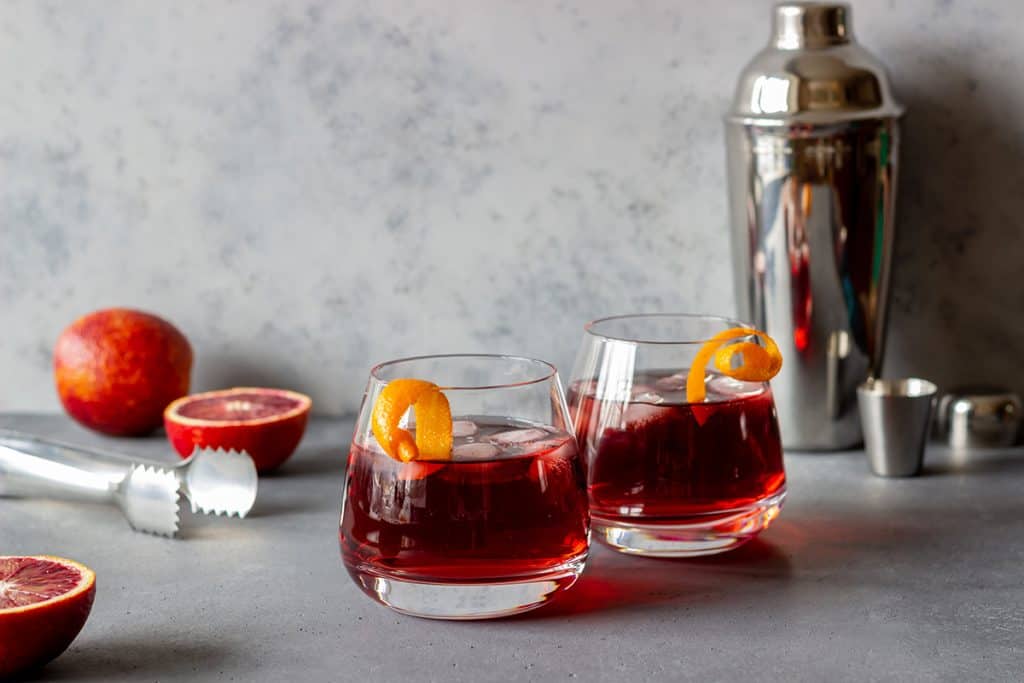Freezing Vermouth: Can You? (Explained)
Vermouth is a popular, delicious wine with fragrant botanical notes and a fruity, dry taste. This wine is usually best served chilled or mixed with cold beverages. But once opened can you store it in the freezer to prolong its life?
You can freeze vermouth, but it does not prolong its shelf life since freezing speeds up the oxidation of most wines. If you freeze your vermouth, it will lose its flavor more quickly and start to taste bland and flat. For the best taste, chill your vermouth, but don’t freeze it.
So, let’s talk about freezing vermouth and what it does to the wine’s flavors. I’ll talk more about vermouth’s shelf life and teach you how to store it properly, and I’ll even debunk some of the most common vermouth myths. So, pour yourself a glass, and let’s jump in!
Does Freezing Extend the Lifespan of Vermouth?
Freezing does not extend the lifespan of vermouth, and chilling it too much could actually make it taste worse. Freezing exposes the vermouth to air, and thawing it could alter its intended taste, aroma, and flavors.
Vermouth is a fortified wine that is aromatized. It has a higher alcohol content than many other wines, which helps slow its oxidation rate.
A slower oxidation rate implies slow flattening of the wine flavor and taste. Oxidation usually makes wine taste worse, so vermouth is pretty resistant to becoming sour.

However, when you freeze a wine, it inevitably oxidizes faster. Freezing vermouth increases air seepage to the bottle due to how fast glass expands when it’s cold compared to how quickly a liquid expands.
For a scientific explanation of this process, sticking a bottle of vermouth in the freezer will cause the bottle to contract. Naturally, liquids contract much faster than solid surfaces. This shrinkage creates a vacuum within the bottle.
As a result, no matter how tight the bottle is closed, cold air will find a way of slipping past the cork and into the bottle. The bottle might crack or explode if oxygen couldn’t make it in. As a result, the bottle will contain air, causing the vermouth to oxidize.
The same phenomenon occurs after keeping a bottle of vermouth in warmer temperatures due to the difference in expansivity rates between the liquid wine and the solid glass bottle.
The bottle expands more than the wine content, creating space (vacuum), and air slowly seeps past the cork and into the bottle. This process exposes wine to air, which leads to the wine’s oxidation.
Ordinarily, oxidation makes the vermouth taste a little flat, less flavorful, or less aromatic, but it doesn’t cause spoilage of the fortified wine. So frozen vermouth is drinkable, but it won’t taste as good as it should.
Therefore, it is not advisable to freeze vermouth to extend its lifespan. Instead, setting the bottle of vermouth in the refrigerator is more effective.
In addition, having to thaw your frozen vermouth first before indulging in it is not particularly a fun activity during happy hour.
Can You Prolong The Shelf-Life of Vermouth?
Vermouth naturally lasts longer than most other wines since it is a fortified and aromatized wine. Typically, a bottle of Vermouth can stay fresh for up to six months after you open the bottle due to its fortification.
The high alcohol content in this wine helps slow down the oxidation rate, helping retain the wine’s flavor, taste, and aroma for longer.
You can prolong the shelf-life of vermouth after opening the bottle. Typically, vermouth has a shelf-life of three to six months after you open it. To make it last as long as possible, keep the bottle sealed and store it in a cool, dark place.

Refrigerating, not freezing a bottle of Vermouth after opening it can slow down the oxidation rate of the wine. It is common knowledge that wine stored in a cooler, more consistent temperature will go flat slower, retaining its flavor, taste, and aroma– hence why wine cellars are so popular.
Chilling the Vermouth will also slow down the oxidation rate, allowing the wine to retain its tasteful flavors for longer.
Also, ensuring that the bottle is well corked could help slow down air seepage into the bottle, slowing oxidation.
Initially, they made the bottle cork denser to minimize air seepage into the bottle. Nowadays, a bottle of Vermouth usually has a screw cap instead of a wooden cork. Due to the screw-on cap, the bottle can get an extra tight seal, making the beverage last longer.
Also, you can use a wine pump (Amazon) to pump out the air gap that remains after you pour yourself a glass of wine. Alternatively, you could transfer the Vermouth into a smaller bottle, which will make less room for air in the bottle.
In addition, always store the Vermouth in a dark place and away from direct UV light exposure.
Debunking the Myths About Vermouth
Behind every great drink lies a set of beliefs, stories, and myths.
There is a common belief that sweet Vermouth has a longer shelf-life than its dry variety. This common belief is true. However, only avid and regular drinkers of Vermouth would notice the difference in taste. For most people, the difference is essentially unnoticeable.
In addition, there is a common belief that wine gets better with time. Most people even use the catchphrase “aged like fine wine.” However, this is not the case for all wines. Not all wines are made equal, and some are best-tasting when they are still fresh.
Vermouth has a period within which it is at its best– typically three to six months after opening. Therefore, it is most advisable to consume Vermouth within the year that it was bottled. If you can’t ascertain when it was bottled, ensure you consume the alcoholic drink within the same year of purchase.
Additionally, as a precautionary step, use a wine saver to pump out most of the air in the bottle and store the Vermouth in a refrigerator or wine cooler.
Suppose you have no access to a refrigerator unit. In that case, store Vermouth in an area where the temperature stays consistently cool with little fluctuation, like in a basement or garage. Temperature fluctuations cause the Vermouth to age faster, reducing its shelf-life.
Therefore, Vermouth does not get better with time, as it has a time limit for the best experience and enjoyment.
What Are Fortified Wines?
Fortified wines are wines with an additional alcohol content to help slow down the oxidation rate. Due to the slow oxidation rate, the wine retains its flavors, original taste, and aroma longer than other wines.
Typical fortified wines include vermouth, dessert wine, sherry, and port. Despite their common fortification characteristics, these wines have varying tastes, qualities, and shelf-lives.

For instance, a port with higher alcohol levels will last longer before losing its vibrancy and flavors. In addition, aged Port will lose its luster and flavors faster than other wines and have a shorter shelf-life after opening the bottle.
This aspect makes a vintage port last only a couple of days after opening the bottle. Typically, Port and sherry should have four to five weeks of excellent taste and flavors before its quality starts to degrade and luster slowly.
However, storing Port in a controlled environment that meets certain conditions could help extend its shelf-life. These conditions include temperature, lighting, and bottling options.
In addition, high sugar levels in wine prolong its shelf-life after opening the bottle or unsealing the casing for boxed wines.
Final Thoughts
Vermouth is a fortified aromatized wine with additional alcohol, an excellent preservative of flavors. However, this drink doesn’t get better with time and has a shelf-life of about six months.
Always store Vermouth in a dry and chilled place like a refrigerator, and never keep it in the freezer. Keep Vermouth away from UV light to minimize degradation.
If you’re not a heavy Vermouth drinker, always use a wine saver to pump out the additional air in the bottle before storing it. In addition, keep smaller bottles of Vermouth so that they don’t last so long after opening.






